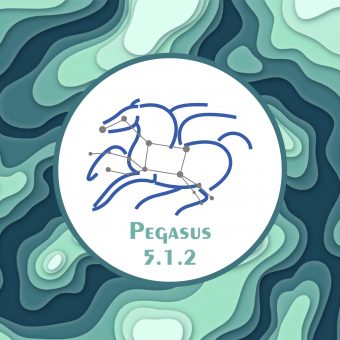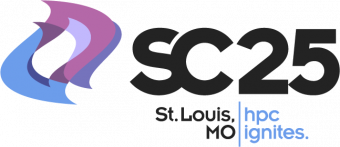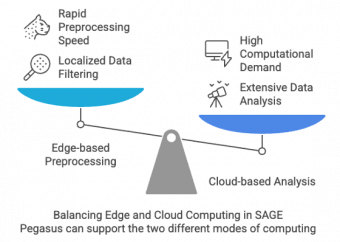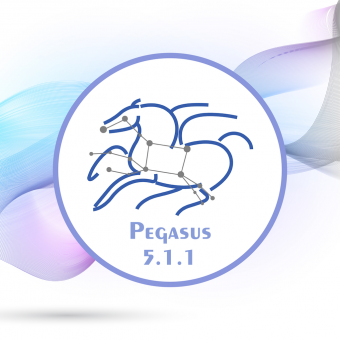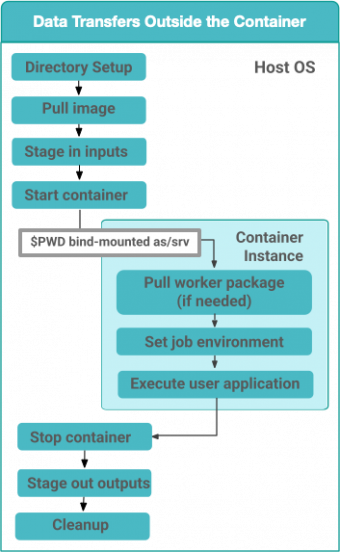Automate
The scientific computational work as portable workflows. Automatically locates the necessary input data and computational resources, and manages storage space for executing data-intensive workflows on storage-constrained resources. Learn more.
Recover
From failures at runtime (fault-tolerance). Task are automatically retried in the presence of errors. A rescue workflow containing a description of only the work that remains is provided. Provenance is also captured (data, software, parameters, etc.). Learn more.
Debug
Failures in computations using a set of system provided debugging tools and an online workflow monitoring dashboard. Learn more.
Pegasus on ACCESS CI
Pegasus is now an integral part of the ACCESS support strategy, offering a hosted environment accessible to all ACCESS users. This hosted environment features a dedicated Open OnDemand web interface, Jupyter notebooks for seamless workflow creation and management, and HTCondor Annex for the straightforward submission of pilot jobs to ACCESS resources.
- ACCESS Pegasus Overview
- Documentation
- Hosted Environment (ACCESS CI account required)
Office Hours
Join the Pegasus team every week for virtual office hours at 11 AM Pacific / 2 PM Eastern. These sessions are an excellent opportunity for both new and existing users to learn and engage. During our office hours, you can expect:
- An in-depth overview of Pegasus and the capabilities it offers.
- Discussions on how to port your application into an HTC workflow using Pegasus.
- Insights into Pegasus concepts and methodologies.
- A guided walkthrough of our comprehensive online training materials.
Please see the Office Hours page for connection information.
Pegasus in 5 Minutes
In this quick 5 minute presentation, the Pegasus team gives you an introduction into the Pegasus Workflow Management System. We give a rundown on how Pegasus workflows are created, compiled for your execution environment, and then executed on distributed resources.
